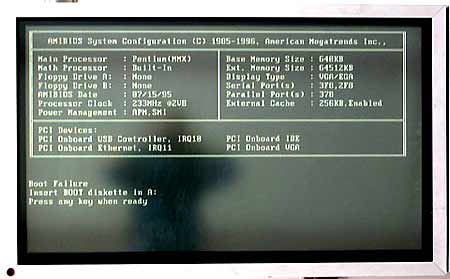Philip Toynbee famously said that if an atomic bomb were dropped on Twickenham during the ‘Varsity (i.e. Oxford v. Cambridge) match then “the prospects of fascism in Britain would be set back by two generations”. I have similar feelings about the Monaco Grand Prix which takes place today, on the grounds that it’s a uniquely obnoxious combination of a corrupt sport and an unspeakable location. For ‘x’ read ‘cks’.
On this day…
… in 1935 T.E. Lawrence died after being injured in a motorbike crash. There was an interesting item on BBC Radio 4’s Today programme claiming that both US and UK troops in Iraq are reading Seven Pillars of Wisdom as a guide to Arab culture. (And no, I did not make that up!) It’s a bit like Tony Blair speed-reading the Koran after 9/11.
EU plans for software patents hit fresh obstacle
From yesterday’s Financial Times…
Plans to issue new European Union rules on patents for the software industry have hit a fresh obstacle, with a European parliament report urging changes to the law that would make it more difficult for many high-technology companies to register patents for their inventions.
The Beeb Shall Inherit the Earth
Nice column by Cory on why the BBC is doing so many things right just now.
Quote of the day
The issue here isn’t one of bad manners — it’s about bad management and bad judgment. Bolton isn’t just a tough guy; he’s a tough guy who apparently used his ire to bludgeon intelligence reports into the shape he sought. It’s one thing to push around your subordinates; it’s quite another to push around the information on which the lives of Americans and American troops depend. The reason Bolton’s nomination strikes so many observers, including me, as so profoundly wrong is that it’s precisely Bolton’s management style — one shared by, and endorsed by, the Vice President’s office — that led to the debacle of American intelligence about Iraq’s weapons of mass destruction in the lead-up to the 2003 invasion.
Scott Rosenberg on the fruitcake Dubya wants to appoint as the US Ambassador to the United Nations
Le Crackberry est arrive!

I’ve been using my new Blackberry for over a week. So far, no sign of the addictive behaviour which led people to rename it the ‘Crackberry’. The key to controlling it is to be VERY selective about which correspondents’ messages are forwarded to the device. I can imagine a forthcoming New Yorker cartoon showing a couple having a tiff and one shouts “Right! That’s it! I’m not letting you through my Blackberry filter any more!” as s/he flounces out. The pseudo-QWERTY keyboard takes a bit of getting used to after years of texting on ordinary mobiles. But the predictive software is actually very good. And it’s really nice having email and text messages presented in the same list and letting the phone sort out what to do after one clicks on ‘reply’.
Reboot that car!
Hmmm… Knowing that I am a Prius owner, Dave Hill kindly sent me this link!
Since its launch, the Toyota Prius has become the most popular gas-electric hybrid automobile. Drawn to its excellent gas mileage, consumers have been so eager to get their hands on the car that they have been willing to pay US$1,000-2,000 over list price for used models.
Some 2004 and 2005 models have fallen victim to a software bug that causes the cars to stall on the highway. In some cases, the cars can be restarted immediately, but other instances have required a call to AAA for a tow into the dealership to get the problem fixed. A Toyota spokesperson blames a “programming error” for the situation and says owners of affected vehicles have been sent letters asking them to bring their cars into the dealership for what is described as an hour-long software update. Overall, it appears that fewer than 30 cars have been affected by the problem.
Phew! But don’t you just love the idea of having your car logged in for a firmware upgrade!
Quote of the day
We could really speed up the whole process of drug improvement if we did not have all the rules on human experimentation. If companies were allowed to use clinical trials in Third World countries, paying a lot of poor people to take risks that you wouldn’t take in a developed country, we could speed up technology quickly. But because of the Holocaust —
Francis Fukuyama, quoted in yesterday’s Washington Post. The quote tails off as I’ve set it out.
I’m reminded of Larry Summers’s idea that pollution should be moved to poor countries because life is cheaper there. How do these screwballs acquire reputations as major public intellectuals?
It was this big, Mum!

Today is Sue’s birthday. If she had lived, she would be 51. One of those days with bitter-sweet memories. I love this picture of her feigning astonishment at one of Tom’s tall stories.
Reboot, reboot I say!
Passing through Cambridge station the other day, Alan Jackson of AidWorld noticed an interesting malfunction.

Normally, it’s the central monitor that is displaying the Blue Screen of Death. This time it was the left-hand screen, displaying a prompt well known to those aged 50 and over! Ah, the days of booting from floppies… Don’t think my kids have ever used one.

